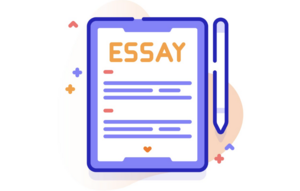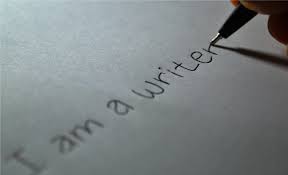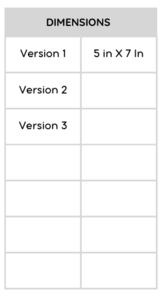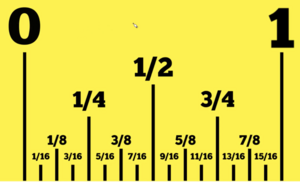The following prompts will help you explore and share your memories and hopefully inspire you to write something that a composer can bring to life.
Memory Museum
Memories so delightful you wish you could hang them in a “you” museum!
Listen: Stephanie Pacheco’s “Where I’m From”
Read: Nikki Giovanni’s “My First Memory (of Librarians”)
Make a quick list of 10 of your favorite things. Like Stephanie, you might remember a beloved field trip. Like Nikki, you might think about how much you love your neighborhood library.
Reread your list, item by item, and pause when one of the beloved items makes you feel something – a jolt of joy, warmth, or hope. Choose the item you’re most excited about and write a poem that tells your reader about the first time you experienced that item: the first time you ate a twist cone at Zesto’s, the first time you remember making your mom laugh so hard she snorted, the first time you realized how far you could kick a soccer ball.
Level up! Be sure to use your five senses (sight, taste, touch, sound, smell) to make that first-time-feeling come alive for your reader!
Memory Interrupted
Exploring what happens to our memories when they work differently than our friends’ memories, don’t work as well as they once did, or get stuck playing on loop.
Listen: a poet from Lincoln East High School (7:48)
Read: Michael Kleber-Diggs’s “It’s a Pagoda Dogwood”
Our memories sometimes work differently than we expect them to. Our brains might hold onto a small, insignificant detail (the name of our childhood friend’s cat) we wish we could download and replace with something more helpful (a math equation we really need to memorize for an upcoming quiz).
Experiences like being autistic, sustaining brain damage, chronic stress, or having anxiety, depression, or OCD can impact our memory function, too. However your memory works is beautiful, dynamic, and unique – something to acknowledge, honor, and celebrate!
Like the poet from Lincoln East High School, you might want to write about the rhythm of your memory, how it gets stuck on a certain idea (like how tasty spaghetti sounds for dinner) and loops and loops and loops. Like Michael Kleber-Diggs, you might think you should be able to remember things you just can’t (like the name of that one park, or song, or the kind of car your best friend always picks you up in.)
Write about a memory that keeps slipping through your fingers, or write about a memory that keeps getting stuck in the folds of your brain.
Level up! Be sure to use your five senses (sight, taste, touch, sound, smell) to make sure your reader can share this memory, too!
Memory Speak
Memories have their own language, their own way of communicating with us, and often take us by surprise.
Listen: a duet from Team Urban Word NYC
Read: Gary Soto’s “Earth Day on the Bay”
Have you ever accidentally kicked an empty can of Diet Coke down the sidewalk and wondered about the person who drank it? Have you ever experienced a memory in a language other than English? Memories come to us in different “languages,” sometimes literally (like the teen poets from Team Urban Word NYC) or figuratively (like the sneaker in Gary’s poem).
Write about a memory that connects you to someone else. Think about things we inherit, like your grandfather’s watch, or your sister’s crooked teeth, or the stranger who signed in ahead of you at the doctor’s office and held the same pen you’re now using to write your name. How does memory keep us connected to each other? To our neighborhood? To our world? If you’re a multilingual writer, you may write this poem – or parts of it – in your home language.
Level up! Be sure to use your five senses (sight, taste, touch, sound, smell) to make sure your reader tastes the sour cherry slushie you’re telling us about or sees the gumball pink sunset you’re watching!
Memory Collector
Some people collect stamps, rubber bands, or dinosaur bones, but you collect memories!
Listen: Harrison Boe’s “Becoming Strangers”
Read: Joy Harjo’s “Memory Sack”
Sometimes we don’t realize something important to us is about to become a memory – the last time we see a friend on the playground before they change schools, the last time our babysitter comes over because we’re now old enough to stay home alone.
You are a Memory Collector – write about the last memory you have of the popsicle before it fell to the hot July sidewalk and became a puddle. Or the last song on the new album before you realized it was over. Or the last chapter of the book you couldn’t put down and didn’t know was already reaching its conclusion.
Like Joy, gather these memories and put them in your Memory Sack. In 150 years, an archaeologist will stumble upon the sack, brimming with your experiences. Where will they put them? What will the news stories say about their discovery? What will your great-great grandchildren learn from them?
Level up! Like a scientist, be sure to use your senses (sight, touch, sound, smell) to make sure your reader understands the importance of this discovery!
Please reach out to the EY coordinator in your building to help you with your poem and submission.










 Looking at how things are alike and different helps us think critically. It allows us to analyze information about animal behavior and ecology, so we can understand and form our own ideas about how animals live and interact with their environment.
Looking at how things are alike and different helps us think critically. It allows us to analyze information about animal behavior and ecology, so we can understand and form our own ideas about how animals live and interact with their environment.
